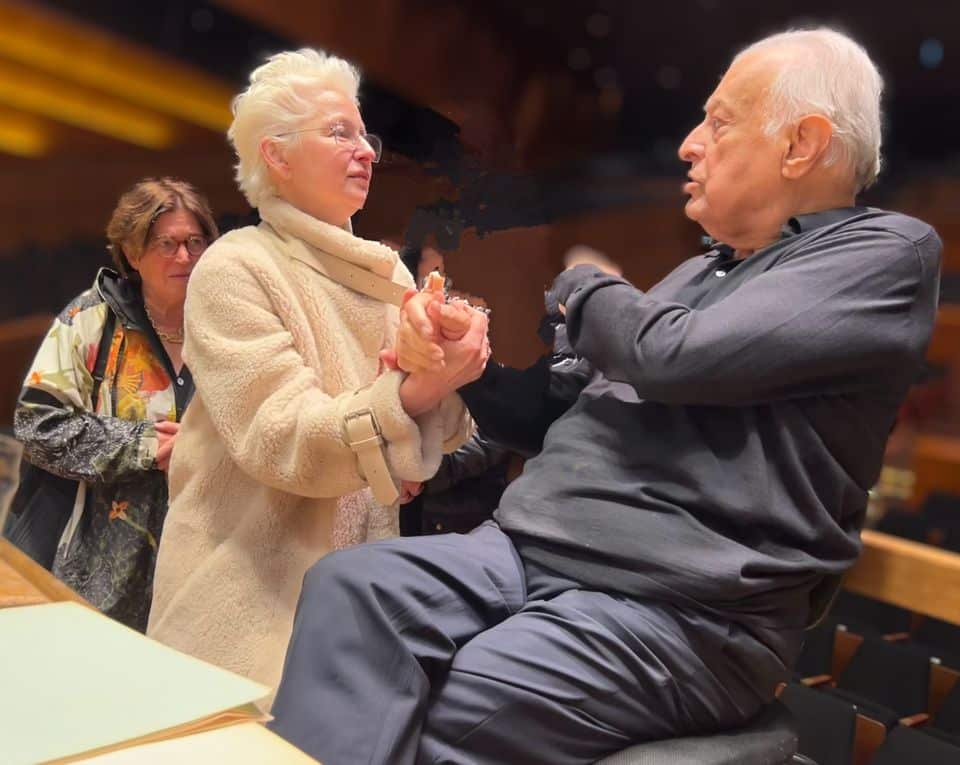Sad news: An English lion has died
main We have been notified of the death last night, in Bath, of the glorious bass-baritone John Shirley-Quirk. John was 83 and still teaching at Peabody in Baltimore and at Bath Spa University in England. A colleague there writes: ‘He was very generous to students and they appreciated his wry sense of humour, to say nothing of his vast and remarkable performing experience.’
We have been notified of the death last night, in Bath, of the glorious bass-baritone John Shirley-Quirk. John was 83 and still teaching at Peabody in Baltimore and at Bath Spa University in England. A colleague there writes: ‘He was very generous to students and they appreciated his wry sense of humour, to say nothing of his vast and remarkable performing experience.’
After a 1961 Glyndebourne debut, John joined Britten’s English Opera Group until the composer’s death in 1976. He recorded many Britten roles and appeared in Michael Tippet’s operas, besides. He was convivial, collegial and intense where it mattered – a fine singer who played a notable role in a generation when British singers strode tall on the world stage.



UPDATE: Official notice:
John Stanton Shirley-Quirk CBE
Born 28 August, 1931 Died 7 April, 2014
John passed away peacefully, surrounded by his family.
Beloved of wife Teresa, children Kate, Peter, Benjamin & Julia, grandchildren Edward, Alice, Hannah & Joe, and step-daughter Sara.
With thanks to all the wonderful people at Dorothy House Hospice in Winsley.
Funeral private, Memorial concert to be announced.
English baritone John Shirley-Quirk enjoyed singing and playing the violin as a child, but his true vocal talent did not become apparent until he was already studying chemistry and physics at the University of Liverpool. After several years of teaching those subjects at a British Air Force station, he began to study with the baritone Roy Henderson (1957). In 1961-1962, he sang with the Cathedral Choir at St. John’s in London; during the same time he made his debut at Glydebourne in 1961 as Gregor Mittenhofer in Henze‘s Elegy for Young Lovers.
In 1963, Benjamin Britten recruited him to join his English Opera Group; with that group he sang the premiere performances of Britten‘s Curlew River, The Burning Fiery Furnace, The Prodigal Son, Owen Wingrave, and Death in Venice (between 1964 and 1973). During that time, he also sang Guglielmo in Così fan tutte and, later, Golaud in Pelléas et Mélisande at the Scottish National Opera. He created the role of Lev in Tippett‘s The Ice Break at Covent Garden in 1977.
Though his career centered around British venues and the music of English composers, Shirley-Quirk‘s career was by no means provincial. He sang his first performances of Wozzeck in St. Louis, and debuted in Berlin with Bartók’s Bluebeard’s Castle in 1969. Milan’s Teatro alla Scala engaged him as Rangoni in Boris Godunov, and in 1974 he made his Metropolitan Opera debut in Britten‘s Death in Venice. Other important roles in his career were the Speaker in Die Zauberflöte and the Music Master in Ariadne auf Naxos.
Shirley-Quirk had equal success as a recital and concert singer. He was highly regarded for his interpretation of the major choral works of Bach and Elgar and sang Mahler‘s Des Knaben Wunderhorn on many concerts in Europe, North America, and Australia. His recitals usually included songs by his mentor Benjamin Britten as well as those of Vaughan Williams and Butterworth.
John Shirley-Quirk‘s lyric baritone voice commanded a wide dynamic and expressive range; he had a wonderful sense of phrasing. It was as an interpreter that he was best known; his intellectual curiousity allowed him to explore the inner world of the works he sang. His recordings, particularly of the works of Benjamin Britten, document his fine artistry. In 1975 he was named a Commander of the Order of the British Empire. (Artist biography by Richard LeSueur)





Comments